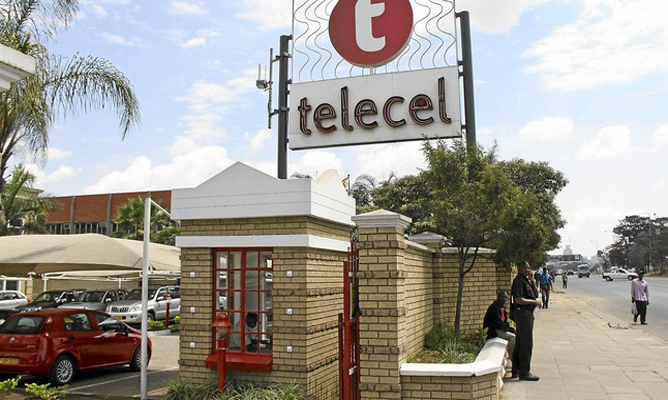
Telecel Zimbabwe majority shareholder, VimpelCom, has said it will not let go of its 60% shareholding in the telecommunications company for free and will charge the market value for the stake to any interested bidder.
by Patrice Makova in Amsterdam, Netherlands
VimpelCom chief business development and portfolio officer, Anton Kudryashov told Zimbabwean journalists at its headquarters in Amsterdam yesterday that while the company was committed to staying in Zimbabwe, it would consider selling its Telecel stake if government continued to put pressure on its operations.
He said if government-owned Zarnet was interested in the Telecel stake as was being reported, it would have to pay the right price for the shares.
“We have to receive proof that government has funding for this kind of transaction,” Kudryashov said.
“We will continue to keep our options open.”
He said Telecel business had suffered due to government interference and negative public pronouncements, which have impacted on the company’s customer base.
“We don’t feel welcome (in Zimbabwe). This is not good,” the VimpelCom executive said.
- Chamisa under fire over US$120K donation
- Mavhunga puts DeMbare into Chibuku quarterfinals
- Pension funds bet on Cabora Bassa oilfields
- Councils defy govt fire tender directive
Keep Reading
Kudryashov said in the absence of unnecessary pressure from government, Telecel Zimbabwe had the potential to grow into a big telecommunications company offering world-class services.
He said Zimbabwe’s indeginisation laws should not be implemented in a manner, which scares away investors.
“The best way to attract investment is to make the indeginisation more acceptable and reasonable and in two or three years, the economy will change and improve for the better,” Kudryashov said.

He said although talks with the Zimbabwean government had been productive, VimpelCom wanted nothing short of the full restoration of Telecel Zimbabwe’s operating licence.
Kudryashov said VimpelCom gave the government six months up to the end of October to restore Telecel Zimbabwe’s licence, failure of which the matter would be heard before the International Centre for Settlement of Investment Disputes.
VimpelCom investments in Zimbabwe are protected by the Bilateral Investment Promotion and Protection Agreement signed between Zimbabwe and both the Netherlands and Switzerland.
Kudryashov said the issue of Telecel was raised at the highest political levels, including with President Robert Mugabe, during his recent visit to Moscow, where he met Russian President Vladimir Putin.
He said Russia was now seized with the issue of Telecel licencing as VimpelCom was owned by Russian investors, and Putin had tasked his Minister of Trade to look into the issue under the joint Zimbabwe-Russia commission.
VimpelCom, which is also registered in Switzerland and listed on Nasdaq stock exchange in New York, United States, operates in 14 countries globally and has a revenue base of about $20 billion.
It is the seventh largest mobile phone operator in the world.
Kudryashov said VimpelCom, together with a Telecel Zimbabwe team led by Angeline Vere, had started a turnaround programme for the Zimbabwean operations to address problems caused by the external factors.
Vere, who was also present, said technical, market and commercial experts from VimpelCom were assisting Telecel in its turnaround strategy and the network and customer base had started to improve.
Government cancelled Telecel’s operating licence in April after the firm allegedly failed to pay $137,5 million in licence fees.
The company also allegedly failed to comply with indeginisation laws requiring at least 51% shareholding to be in the hands of locals.











